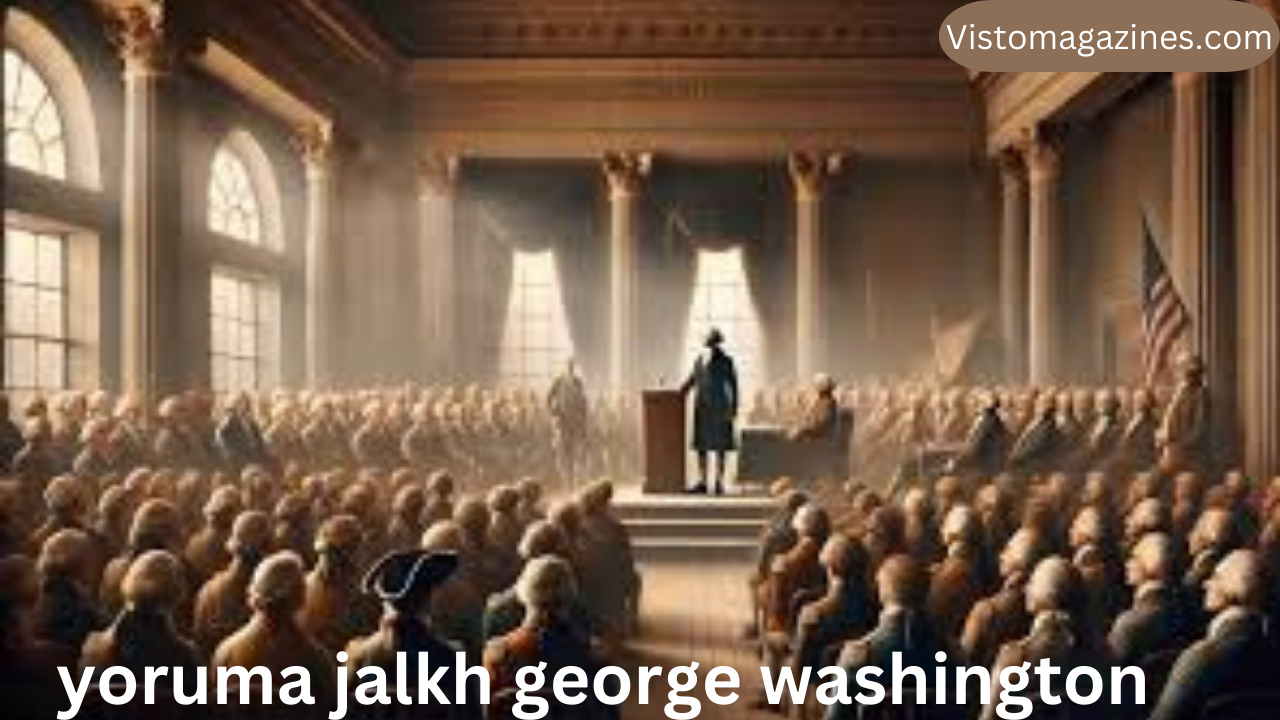Yoruma Jalkh George Washington: Unveiling Connections and Perspectives
The names Yoruma Jalkh George Washington may seem to belong to different eras and contexts, yet there are intriguing ways in which their stories and legacies intersect through the lens of historical analysis, leadership, and vision. While George Washington, the first President of the United States, is renowned for his role in founding the American nation, Yoruma Jalkh represents a more contemporary figure whose contributions and viewpoints resonate with themes from Washington’s time. This article seeks to explore these connections and illuminate how both individuals, though from different worlds, continue to inspire ideas of leadership, progress, and governance.
Who is Yoruma Jalkh?
Yoruma Jalkh, while not as widely recognized as historical figures like George Washington, has emerged in certain circles as a thought leader and commentator on issues related to governance, societal transformation, and the role of leaders in shaping modern political landscapes. Though details of his life and work might not be as thoroughly documented in mainstream historical records, Jalkh’s influence can be seen in his philosophical outlook and commitment to promoting dialogue and progress in society.
One notable aspect of Jalkh’s work is his dedication to fostering conversations about leadership, democracy, and human development. While Washington’s leadership laid the foundation for modern American democracy, Jalkh’s contributions often center around the evolution of those ideals, especially as they pertain to the challenges and opportunities of the modern world. His work engages with themes that echo the dilemmas and principles Washington confronted in the early days of the American Republic.
George Washington: A Legacy of Leadership
George Washington’s legacy is indelible in the history of the United States. As the first president, his leadership style and choices established many of the practices and norms that are still observed in American governance today. Washington’s presidency, lasting from 1789 to 1797, is a critical period in the development of the United States, as it set a precedent for democratic leadership and the balance of powers. His decision to voluntarily relinquish power after two terms, rather than continue indefinitely, reinforced the importance of the peaceful transfer of power in democratic systems.
Beyond his presidency, Washington’s military leadership during the American Revolutionary War marked him as a symbol of perseverance and resolve. He was instrumental in the success of the colonial cause against the British Empire and ultimately helped to secure the independence of the United States. Washington’s character—his humility, integrity, and vision—shaped how he is viewed in American history. He stood for the ideals of liberty, self-governance, and the pursuit of the common good, principles that continue to guide democratic thought today.
Shared Ideals: Leadership and Governance
Although Yoruma Jalkh and George Washington come from vastly different times and backgrounds, their views on leadership share some common threads. Both men recognized the importance of moral integrity in leadership. Washington was often described as a man of great virtue, whose sense of duty to the country never wavered. He placed the interests of the United States above his personal ambitions, establishing the ethos of self-sacrifice in political leadership.
Similarly, Jalkh’s thoughts on leadership revolve around the idea that leaders must serve their people selflessly. His writings and public speaking emphasize the need for leaders to adopt a forward-thinking mindset that can anticipate challenges and implement solutions for the betterment of society. Like Washington, Jalkh sees leadership as a calling, not a means to personal gain, but as an avenue to elevate the collective well-being of the populace.
Both figures also seem to believe in the power of unity and collaboration. Washington, during his presidency, worked tirelessly to unite a diverse group of states, each with its own interests and priorities, into a cohesive union. In the modern context, Jalkh often speaks of the importance of bringing diverse voices together in the pursuit of common goals, especially in an era where political polarization is increasingly prevalent.
Governance and Its Challenges
Governance, whether in Washington’s time or in the present day, is fraught with challenges. For Washington, the early years of American governance were filled with questions about how best to form a government that balanced the competing interests of states and the new federal system. His leadership faced the challenges of dealing with foreign powers, establishing domestic policies, and creating a stable financial system.
Jalkh, living in an era marked by globalization, technological advancements, and complex political dynamics, faces a different set of challenges. His thoughts often address how leaders can navigate the intricacies of modern governance, such as the role of technology in politics, the shifting global power structures, and the growing demands for environmental sustainability and social justice.
Despite these differences, both men share an understanding that governance must be adaptive and responsive to the changing needs of society. Washington’s policies, such as his stance on foreign alliances and his leadership during the Whiskey Rebellion, demonstrated his ability to navigate both domestic and international pressures. Similarly, Jalkh advocates for dynamic leadership that is able to evolve in response to emerging challenges, ensuring that governance remains relevant and effective in addressing the needs of the people.
Vision and Ideals: Common Ground Between Jalkh and Washington
Both Jalkh and Washington are driven by a vision of a better society. Washington’s vision for the United States was rooted in the principles of freedom, democracy, and equality. He believed that the United States should be a beacon of liberty for the world and that the new nation had a unique role to play in shaping global affairs. Washington’s vision also included a deep respect for the rule of law, the importance of individual rights, and the need for a government that worked for the common good, rather than for the benefit of a select few.
Yoruma Jalkh’s vision, though more contemporary, shares similarities with Washington’s ideals. He often speaks about the role of governments in ensuring that individuals can live with dignity, equality, and opportunity. Jalkh’s advocacy for social justice, environmental stewardship, and global cooperation mirrors some of Washington’s broader goals of creating a society in which liberty and justice are paramount. Where Washington focused on the ideal of a free and independent nation, Jalkh’s work extends those principles to a global stage, calling for a more just and sustainable world order.
The Impact of Their Legacies
George Washington’s influence extends far beyond his time. His leadership set the tone for future American presidents and continues to inform political thought today. Washington is often cited as the model of integrity, humility, and the selfless service expected of those who hold power. His legacy is enshrined in American culture, with his actions forming the basis of many of the values cherished in the United States.
For Yoruma Jalkh, his legacy is still in the making, but his contributions are already influencing contemporary political discourse. Through his writings, speeches, and public engagements, Jalkh is helping to shape how we think about leadership, governance, and society. His focus on progressive ideals and the need for leaders to engage with global issues positions him as a key figure in current debates about the future of governance.
While Washington laid the foundation for the American system of government, Jalkh offers a vision for how that system, and others around the world, can evolve to meet the needs of the 21st century. Both men, though separated by centuries, share a commitment to bettering society through thoughtful leadership and a clear moral compass.
Conclusion
The comparison between Yoruma Jalkh and George Washington, though seemingly unconventional, reveals important insights about leadership, governance, and vision. Washington’s foundational role in American history and Jalkh’s contemporary reflections on societal progress offer complementary perspectives on the evolving nature of political thought. Both men, through their actions and ideas, remind us of the importance of leadership that is ethical, visionary, and committed to the common good. Their legacies—though shaped by different eras—continue to inspire those who believe in the transformative power of governance to create a better world.



